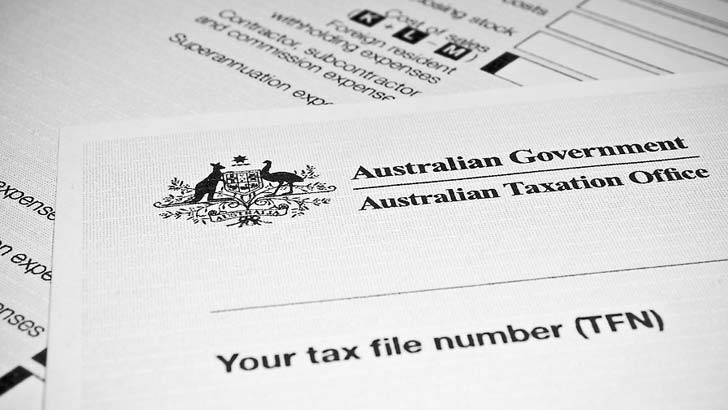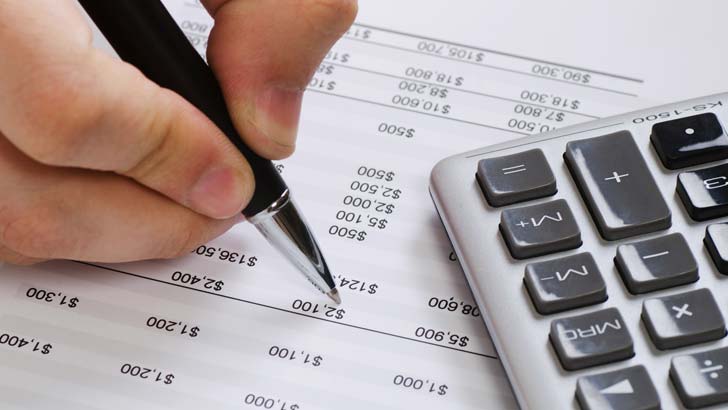How to get a mortgage when you're self-employed
By Nicola Field
More than one million Australians are swapping the 9-to-5 grind for the freedom of the gig economy, picking up work from a variety of freelance jobs - from driving for Uber to designing websites.
Add a further 1.27 million people running single-operator businesses and it's easy to see how the world of work has changed.
Like all self-employment, the gig economy can be rewarding from both a lifestyle and financial perspective. The downside can come when you want to buy a home.
"Generally speaking, it has always been more challenging for self-employed workers to secure a home loan, as it can be difficult to demonstrate a stable income and continuity of employment," says Susan Mitchell, CEO of Mortgage Choice.
A 2017 report by non-bank lender Pepper Money found that 26% of Australians who had been knocked back for a loan were refused because they were self-employed or worked part time.

The thing is that working for yourself doesn't have to spell the end of home-buying dreams. It just means you may need to take a few extra steps in order to get a mortgage when you're self-employed.
Phil Gallagher, mortgage broker with Aussie Belmont in the Lake Macquarie region in NSW, says that around one in three of his home-buying customers is self-employed.
The good news, according to Gallagher, is that self-employed borrowers can usually access the same loans and lenders as home buyers working for an employer - often with a deposit as low as 5% - as long as they meet all the usual income and affordability requirements.
That said, Gallagher recommends following three key rules of thumb: "Have your tax returns up to date, show that you're earning a profit and keep things simple."
Stay on top of tax returns
Without a regular payslip, lenders rely on formal tax assessments to confirm a self-employed borrower's income.
"If you are self-employed, a freelancer or a contract/temporary worker, you need to be able to demonstrate a history of income by way of your tax returns," says Mitchell.
Two years of tax assessments are preferable but Mitchell says that as an absolute minimum "lenders require a borrower's most recent full tax return and notice of assessment".
The catch with tax returns is that it can be tempting to downplay income. As Gallagher points out, banks want to see that a business is profitable, yet accountants and tax professionals can focus on tax minimisation.

Mitchell cautions that if you've structured your business and your financials to minimise tax, it can be difficult to qualify for a home loan. Put simply, the lower your taxable income, the lower your borrowing capacity will be.
Trying to convince a lender that you really earn more isn't the answer. Not only is it the equivalent of admitting you fudged your tax return, it can also flag you for a tax audit.
Having a lifestyle that's out of sync with your taxable income is one of the issues that catches the tax office's eye.
The solution can involve compromise.
"If your goal is to purchase a property in the next 12 months or so, speak to your accountant and make them aware of the potential need to maximise your income for that purpose," says Mitchell. It can come down to the choice between saving on tax and qualifying for a home loan.
Lumpy cash flow isn't a problem
One of the downsides of working for yourself is the potential for irregular income. Some weeks can bring a flood of pay cheques while others can see just a trickle of income or none at all.
Without the benefit of set pay days, it can take discipline to stick to a budget and manage regular mortgage repayments.
Fortunately, this "lumpy" cash flow shouldn't work against you when you apply for a home loan.

"It's generally not a problem," says Mitchell. "Lenders will look at a borrower's total income over the past 12 to 24 months. The fact that the income may have been earned irregularly is not that important."
Mitchell adds that lenders like to see consistency.
"Be prepared to explain fluctuations in your income, especially if it has significantly increased or fallen over certain periods."
Keep it simple
One pitfall to be aware of is over-complicating your business affairs.
"Banks are very process driven," says Gallagher.
"If you have something like complex lease arrangements, the lender is unlikely to invest time trying to understand how it all works. Presenting information that is easy to understand will work in your favour."
This particularly applies to the way you structure your business.

"If you don't have control of the income flow a lender may say no to a loan," says Gallagher. It's a problem that can arise if you have less than a 50% stake in a venture, as can be the case with a three-way partnership.
Even then, Gallagher says loan options for more complex work arrangements may be available through specialist lenders, though this could mean paying a higher rate or stumping up a larger deposit.
Lowdown on low-doc loans
If you don't have up-to-date tax returns, it may be possible to be considered for a low-documentation home loan.
Mitchell says this means providing evidence other than tax returns, such as business activity or bank statements.
It may sound like an easy option but not all lenders offer low-doc loans. Among those that do, the interest rate is often higher than for a regular loan.

As a guide, Bendigo Bank's low-doc home loan comes with a rate of 5.58% compared with 3.99% for its basic home loan.
And as lenders regard low-doc loans as higher risk, you may need a deposit of at least 20%, in some cases more.
The upshot is that it can be worth getting your tax affairs up to date and putting yourself in the running for a more affordable home loan with a mainstream lender.
Maintain good records
These days lenders don't just want to see evidence of income. They also like to get a better idea of a borrower's living costs regardless of employment status.
This makes good record keeping a must for all home loan applicants.
Mitchell says that lenders have their own requirements for expense verification, but self-employed workers should keep all invoices relating to their business expenses so that they can supply them to the lender if need be.

One final point worth noting is that if you've only just begun working for yourself, it may pay to delay your home-buying plans until you're established and have a better idea of your annual income.
"If you've become self-employed in the past two years, don't have an expectation that you will automatically be eligible for a home loan," says Mitchell.
"Lenders want some comfort that your business is generating enough income to service a loan. This is especially so if you're in a start-up business where cash flow is tight."
Speaking to a lender or mortgage broker at an early stage will give you a better idea of whether you're likely to qualify for a home loan and how much you can borrow.
Get stories like this in our newsletters.

